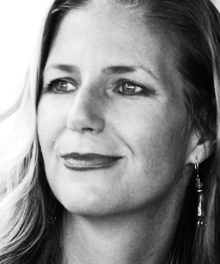 By Margaret Evans, Editor
By Margaret Evans, Editor
Story of my life, in a nutshell . . .
I’m sitting at a red light on Ribaut, listening to two women on NPR discuss President Trump’s recent meeting with Congress, which, according to them, has gone awry in typical Trumpian fashion. The NPR women are speaking in quiet, respectful tones and I’m listening closely and diligently – because I care! – when all of a sudden I hear (and actually feel) some loud, familiar music coming up behind me.
I glance in my rearview mirror, and there’s a burly guy on a motorcycle smiling back at me, cranking the opening strains of “Freebird.” Man, is that music booming! And really distracting. I’m still trying to follow the quiet, respectful women on NPR – they’re talking about something important – but now I’m having a hard time hearing, and I’m frustrated . . .
So, naturally, I turn up the radio, right?
Nah. I roll down the window.
I am many things: A wife, a mother, an involved citizen, a reader, a writer, a choral singer, a birder . . .
But I am also a Southerner. And the brand runs deep.
Though I say it perennially, I’ll say it again: It’s an awkward time to be a Southerner.
And try being a Southerner from Alabama. That’s especially fun. Ever since last week’s abortion bill was signed into law, my Facebook newsfeed has seen a marked uptick in references to “Alabamastan” and “Talibama,” as threats to boycott ‘Bama abound and irate hashtags multiply.
While I understand that people are angry, and certainly understand why, there’s something in me that bristles. Call it orneriness or cussedness or maybe just plain loyalty, but there’s a part of me that recoils from those who would crucify an entire state for the actions its lawmakers. And I can’t decide who bothers me more – the outsiders, or the Alabamians themselves, many of whom have posted public declarations “disowning” their home state.
To me, that feels a bit like disowning your family because Aunt Ethel got drunk and slept with the mailman again. A decent case could be made for doing that, but I just don’t have the stomach for it.
In a recent essay for the New York Times, Margaret Renke wrote about her own complicated relationship with the South, saying, “even in these dark days, when vicious people stand brazenly on street corners holding hateful signs, anger is not the only thing I feel. Living here, I also know how much of this life defies flyover-country prejudice. I know that Southern hospitality is a real thing, and that it isn’t race-contingent. I know that the transcendent natural beauty of this region matches the majesty of any other place on earth. I know how very many people here are fighting to make life safer and more equitable for everyone, even for those who keep voting to make life less safe and less fair for everyone else.”
She lists a whole host of social justice organizations in the South, then adds, “But even more than these vital and necessary organizations, it’s the regular people who give me hope. The worried Southerners who didn’t leave. The worried Southerners who vote for change (and volunteer on Election Day to help others vote for change), who write their elected representatives time and time and time again, who support the full-time advocates with funding and social-media shares and everything else they can think of. The worried Southerners who work to preserve what’s good about this beleaguered region and to heal what’s hateful.”
It’s a beautiful essay, and heartening to read, but it doesn’t quite capture all I’ve been thinking and feeling lately. If it did, I wouldn’t be writing this now.
(That’s how it works for me. If somebody writes what I’ve been thinking and feeling – often subconsciously – I typically have a good cry, share the article on Facebook, and move on. Catharsis accomplished. Otherwise, I’m driven to write the essay I need to read. Somebody’s got to, right?)
What Renke’s piece failed to scratch, I think, was my itch to hear somebody say: These People Are Not Monsters. Renke does a great job describing the natural beauties and wonders of the South, and the regular “worried Southerners” who want change – the same change that she, herself, would like to see. But what she doesn’t address – not to my satisfaction – is all those other “regular people,” the ones who worry about different things. Those who are pro-life, or who – like me – are pro-choice, but respectful of the pro-life position. In her essay, all those other “regular people” seem lumped in with “what’s hateful,” the forces that need to be healed.
We really have to stop doing this, y’all. We have to stop calling people “hateful” when they’re not. Not only does it dilute the power of the word “hate” – which really needs to stay powerful – but it fuels actual hate. Being falsely accused of hate feels kind of like being hated … and tends to make a person hate back. It’s a self-fulfilling accusation. Call somebody a hater, and chances are they will be. Eventually.
Abortion is a complicated issue, to state the obvious. Or at least it should be obvious. Even those of us firmly planted on one side of the debate should understand our opponents well enough to grant that their positions are based on moral and ethical commitments . . . not hate. Only with such understanding can we have a national conversation in good faith – and continue to coexist as the pluralistic society we’ve become. As it stands, both sides seem mired in mutual suspicion, projection, and ill will, causing them to double down on extreme positions – as we’ve seen with these recent bills in the South. According to polls, a majority of Americans believe abortion should remain legal, with certain restrictions. They reject the extreme positions of activists on both sides of the debate. But the “majority of Americans” don’t lead political discussions, and when they try to get a word in edgewise, they’re typically shouted down, caught in the crossfire between people hurling “hater!” back and forth across the cultural divide.
I often think of Beaufort as a microcosm of that divide – a diverse, sophisticated coastal city with a healthy dose of small-town southern values – and I have delighted in being a citizen of both cultures. As those cultures increasingly clash and collide, it’s becoming more difficult to maintain dual citizenship, but I am committed. These days, that commitment feels more important than ever. I’m in it for the long haul – body, mind, and soul.
I won’t be giving up my NPR or my Skynyrd.






